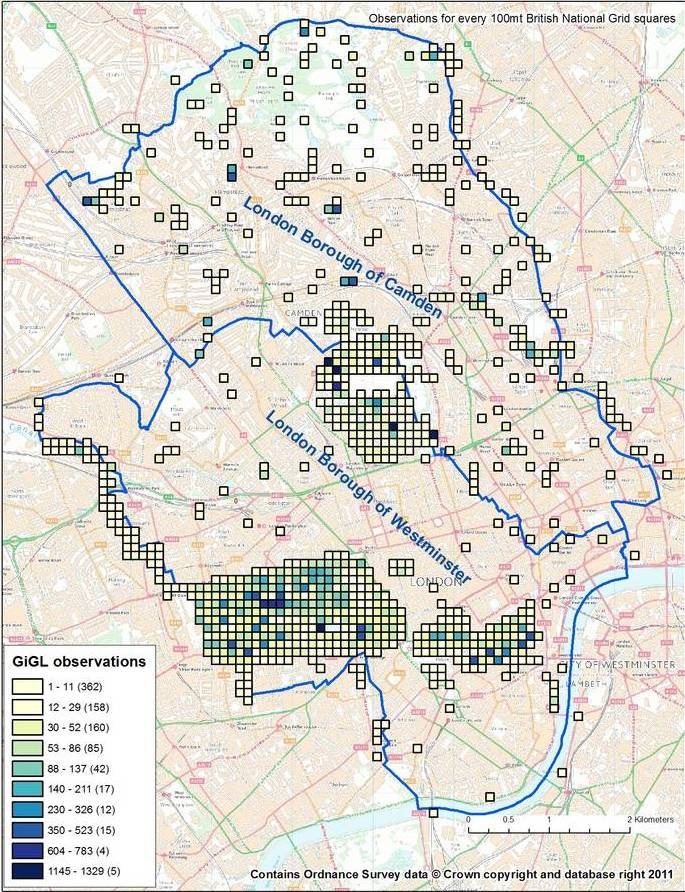Gianfranco Gliozzo, University College London

GiGL Observations in Camden & Westminster. Map by Gianfranco
The Millennium Ecosystem Assessment popularised the concept of ‘ecosystem services’; making sure nature is considered in decision-making by measuring and accounting for the benefits it provides to human wellbeing.
The value of some services such as pollination of agricultural crops can be measured, however not all services are so easily quantified. The intangible values of nature as a source of inspiration, as the source of religious symbols and practices, and as something that contributes to tourism are classified as cultural ecosystem services.
To measure these qualitative benefits, we can look at human activities that demonstrate attachment to nature. One such measure of cultural ecosystem services is the quantity and frequency, as well as the range and timing, of volunteer contributions to environmental recording and other environmental volunteer activities. GiGL datasets give us an invaluable quantity of this information.
Social and cultural biases towards environmental factors can be assessed by matching environmental observations and census data. We can also measure the spatial and temporal differences between citizen science and professional recording in London. The attractiveness of biodiversity to laypeople can also be assessed by analysing data on citizen science.
Amongst the research questions we hope to answer are the following: When are volunteers more likely to act? Where do they most often go? Which species are most likely to be recorded by volunteers? Which urban areas tend to attract recording of environmental data? Is there any correlation between ethnicity and environmental volunteering?
The research is a partnership between the Extreme Citizen Science (ExCiteS) research group, the Zoological Society of London (ZSL) and the Centre for Biodiversity and Environment Research (CBER).
Gianfranco Gliozzo is studying for an Engineering Doctorate (EngD) at University College London, sponsored by the Zoological Society of London. He is part of the ExCiteS research group, which aims to develop methods and techniques to advance public participation in science and forward the merging of academia and society. Gianfranco has a background in spatial and environmental planning and use of Geographic Information Systems (GIS). He is interested in the relation between citizens and their environment and is therefore tailoring his analysis techniques to detect local knowledge.
